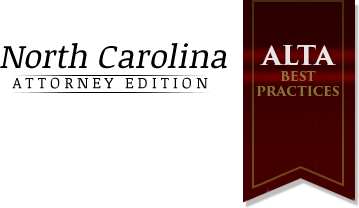CFPB & ALTA
What's Going On (And Why You Should Care)
Dodd-Frank created the Consumer Financial Protection Bureau (CFPB) www.consumerfinance.gov with authority to assure that providers of financial products or services, including real estate closings, must comply with applicable consumer financial laws listed in the Act. As a result, the CFPB can bring enforcement actions directly against a real estate settlement services provider (such as a closing attorney or a title insurance agent) for a violation of a consumer financial protection law. (See History)
Over the last few years, enforcement actions have increased with huge settlements.
On April 13, 2012, the CFPB issued issued Bulletin 2012-03
Relating to consumer financial services generally, which provides:
The CFPB expects supervised banks and nonbanks to have an effective process for managing the risks of service provider relationships. The CFPB will apply these expectations consistently, regardless of whether it is a supervised bank or nonbank that has the relationship with a service provider. To limit the potential for statutory or regulatory violations and related consumer harm, supervised banks and nonbanks should take steps to ensure that their business arrangements with service providers do not present unwarranted risks to consumers. These steps should include, but are not limited to:So lenders can (and increasingly are expected to) conduct due diligence investigations or require some type of assurance of a closing attorney's ability to comply with the above.
- Conducting thorough due diligence to verify that the service provider understands and is capable of complying with Federal consumer financial law;
- Requesting and reviewing the service provider's policies, procedures, internal controls, and training materials to ensure that the service provider conducts appropriate training and oversight of employees or agents that have consumer contact or compliance responsibilities; (emphasis added)
- Including in the contract with the service provider clear expectations about compliance, as well as appropriate and enforceable consequences for violating any compliance-related responsibilities, including engaging in unfair, deceptive, or abusive acts or practices;
- Establishing internal controls and on-going monitoring to determine whether the service provider is complying with Federal consumer financial law; and
- Taking prompt action to address fully any problems identified through the monitoring process, including terminating the relationship where appropriate.
The American Land Title Association (ALTA) began to develop a uniform set of "Best Practices" for the closing and title examination industry, - for firms large and small - as well as a process by which closing attorneys (or agents in other states) could be assessed and provide assurance to any lender that they comply and should be allowed to continue to close transactions. These would allow the firm to do a self-assessment, in preparation for a third party assessment of their compliance with the Best Practices, -- the “Assessment Procedure.” The Assessor would then issue a certification of compliance and the closing attorney and their firm could create a simple Certification Package to present on request from any lender.
This website, the Handbook, links and resources, are intended to assist North Carolina closing attorneys in getting started on this process!

